images
![]()
![]()
![]()
1
![]()
![]()
2
![]()
![]()
3
![]()
4
![]() 5
5
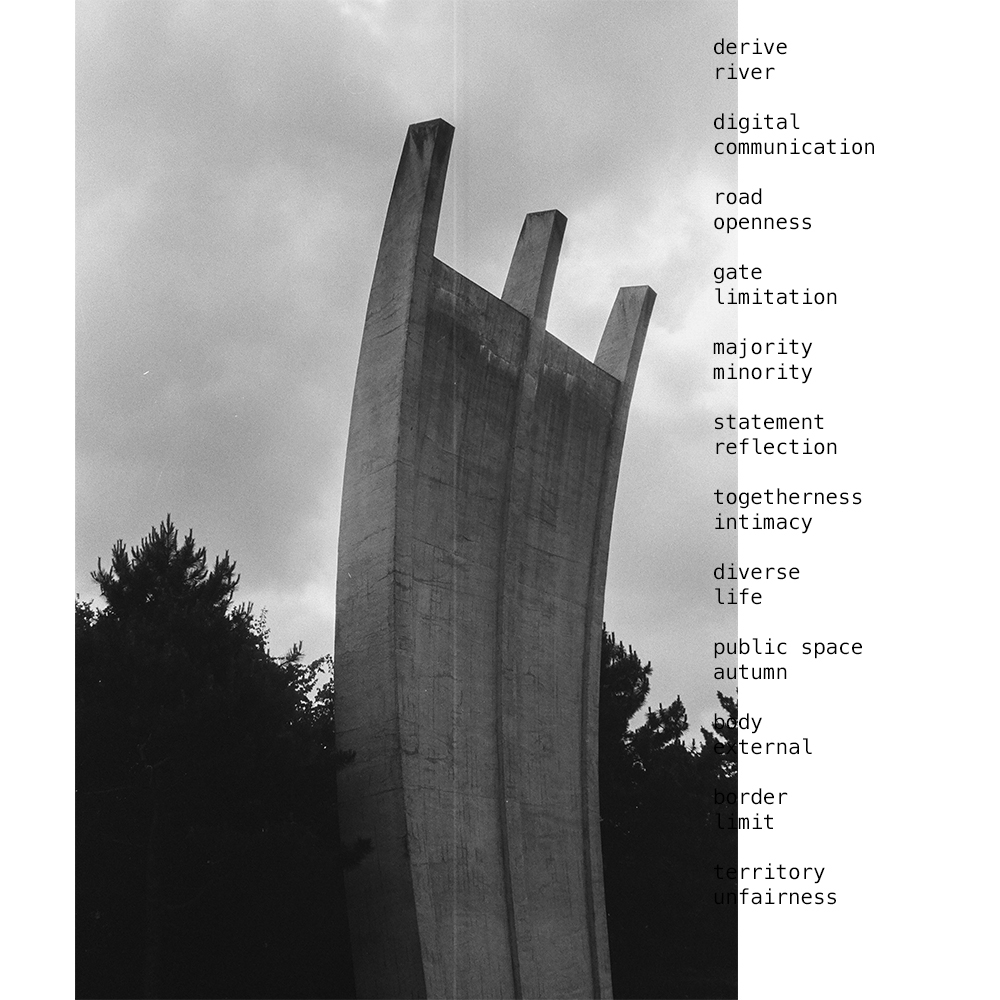
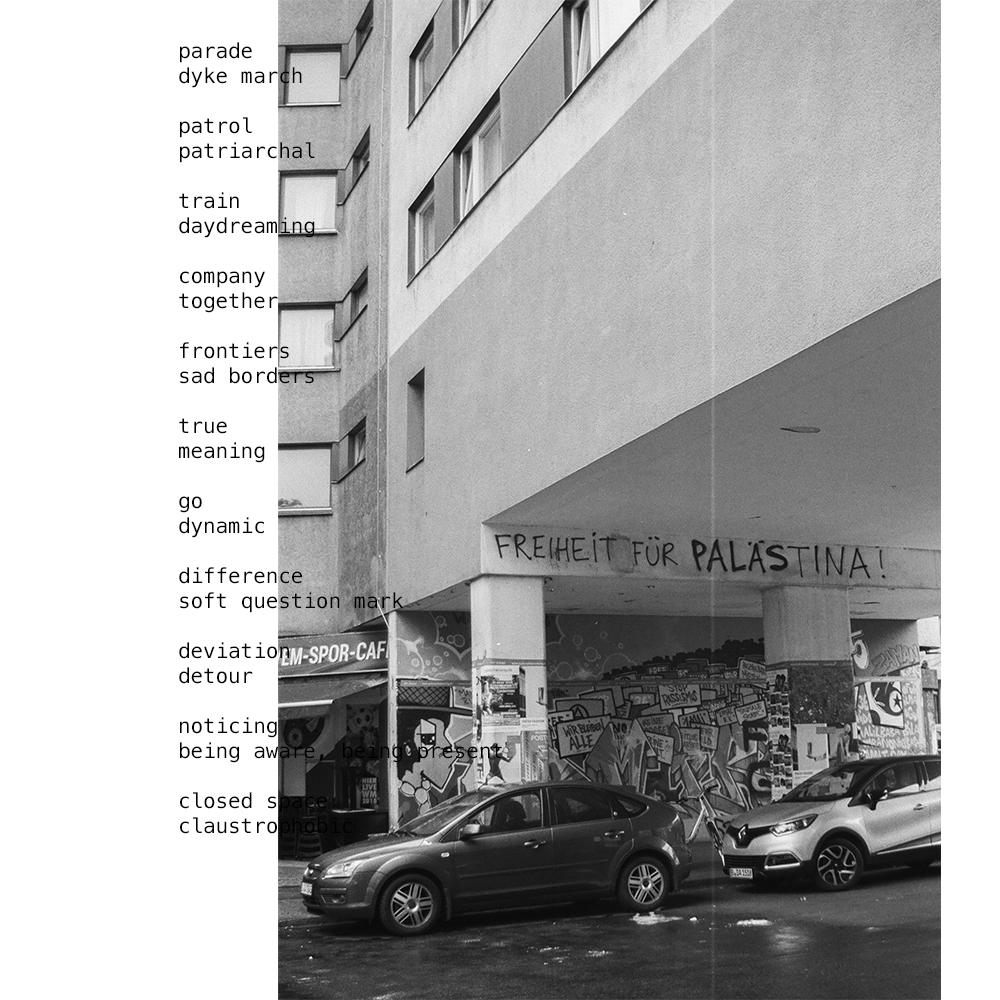
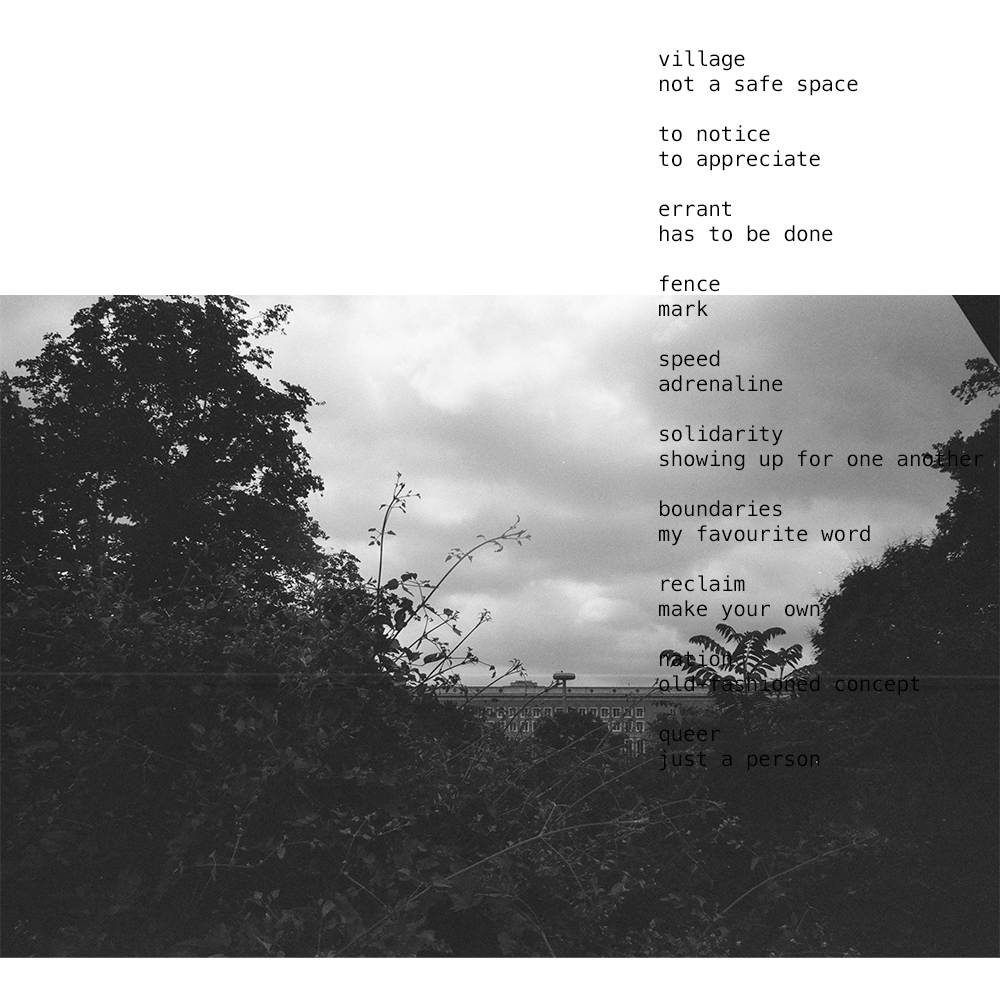
1
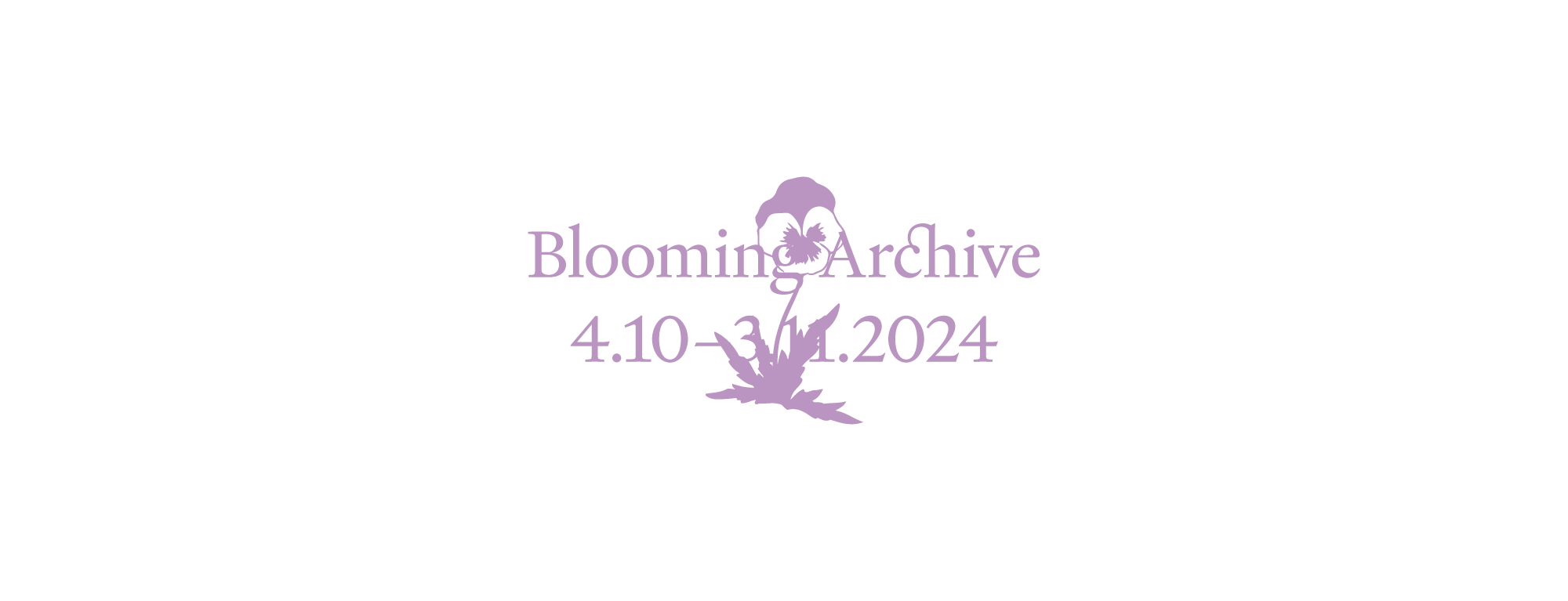
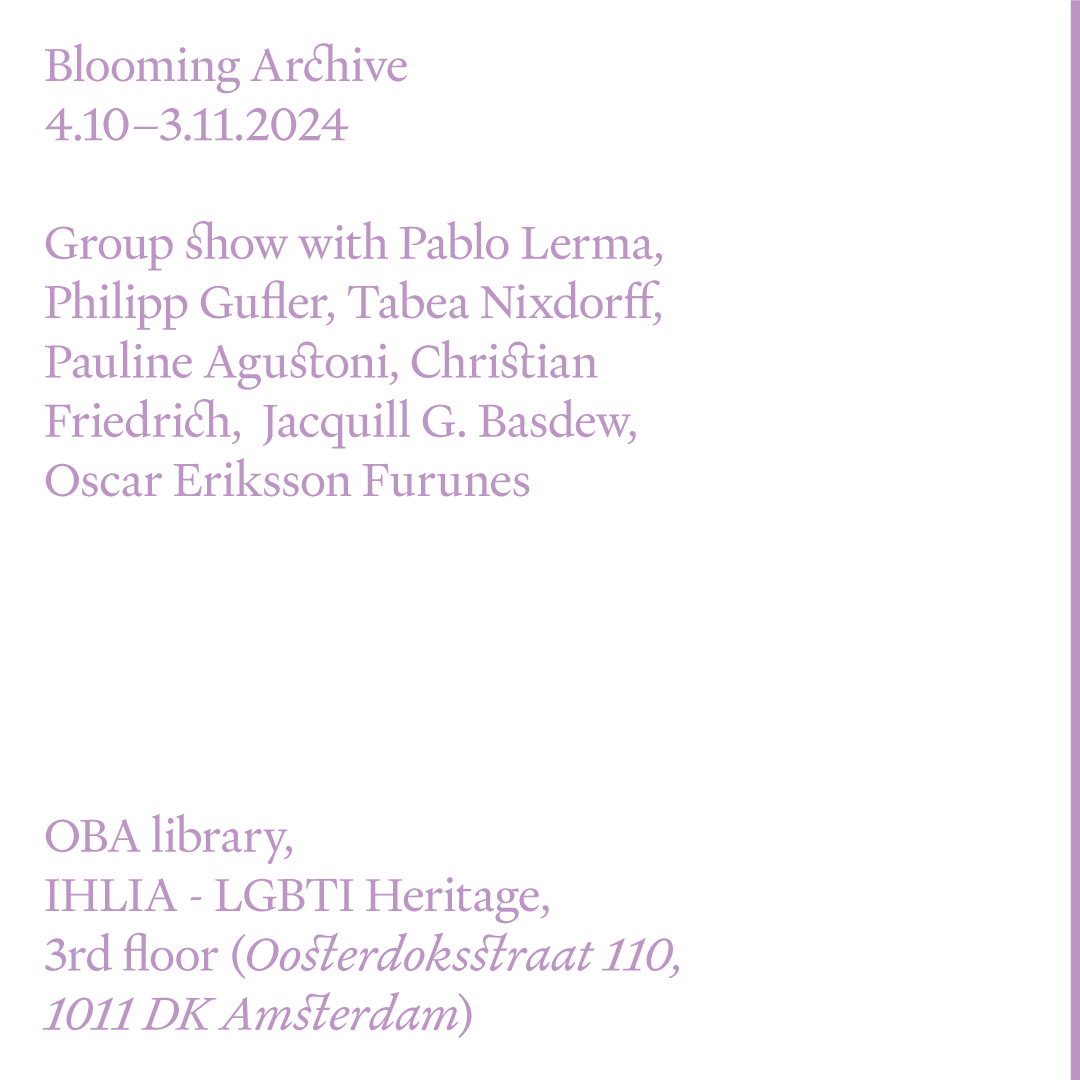
2

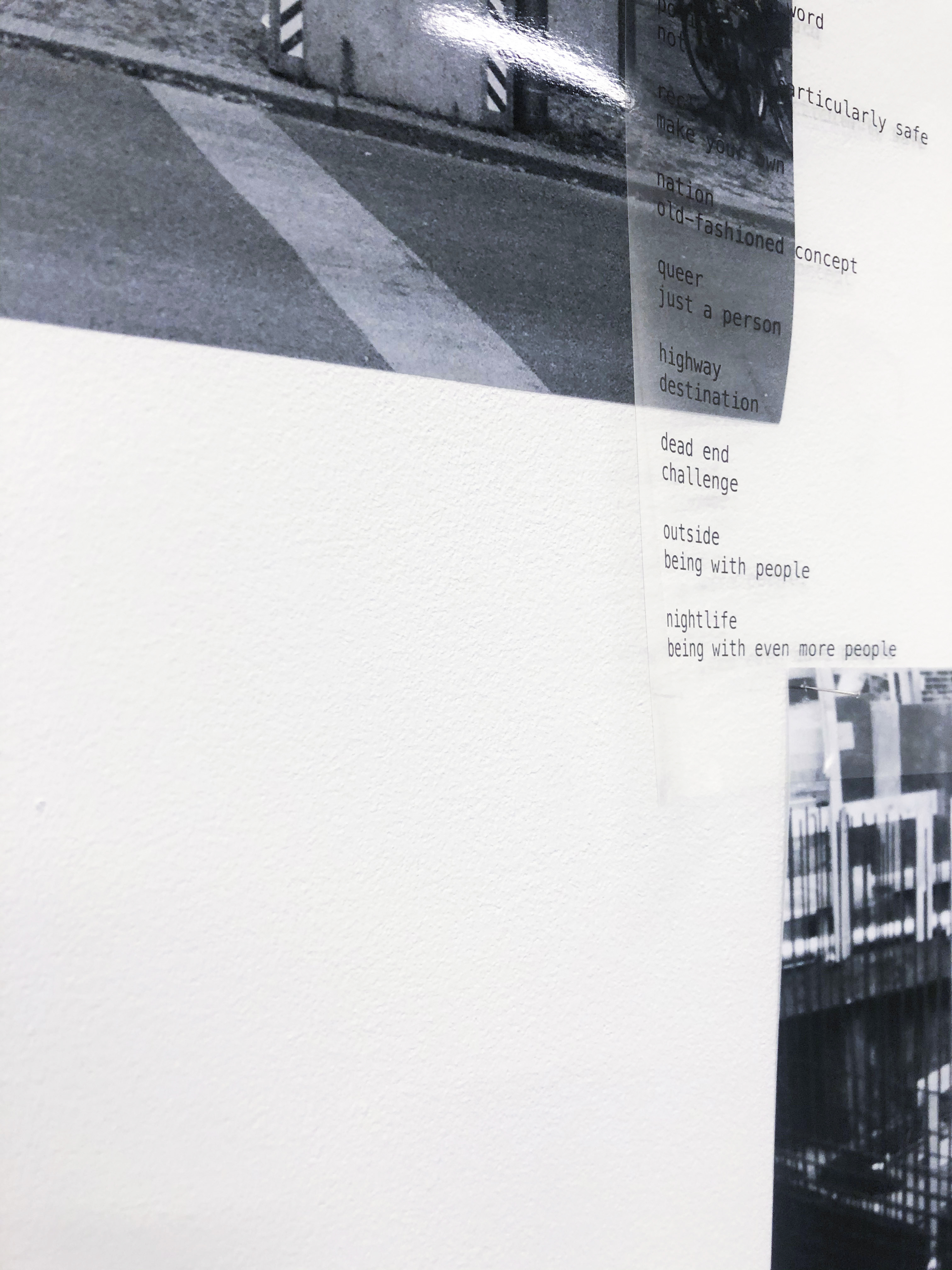
3
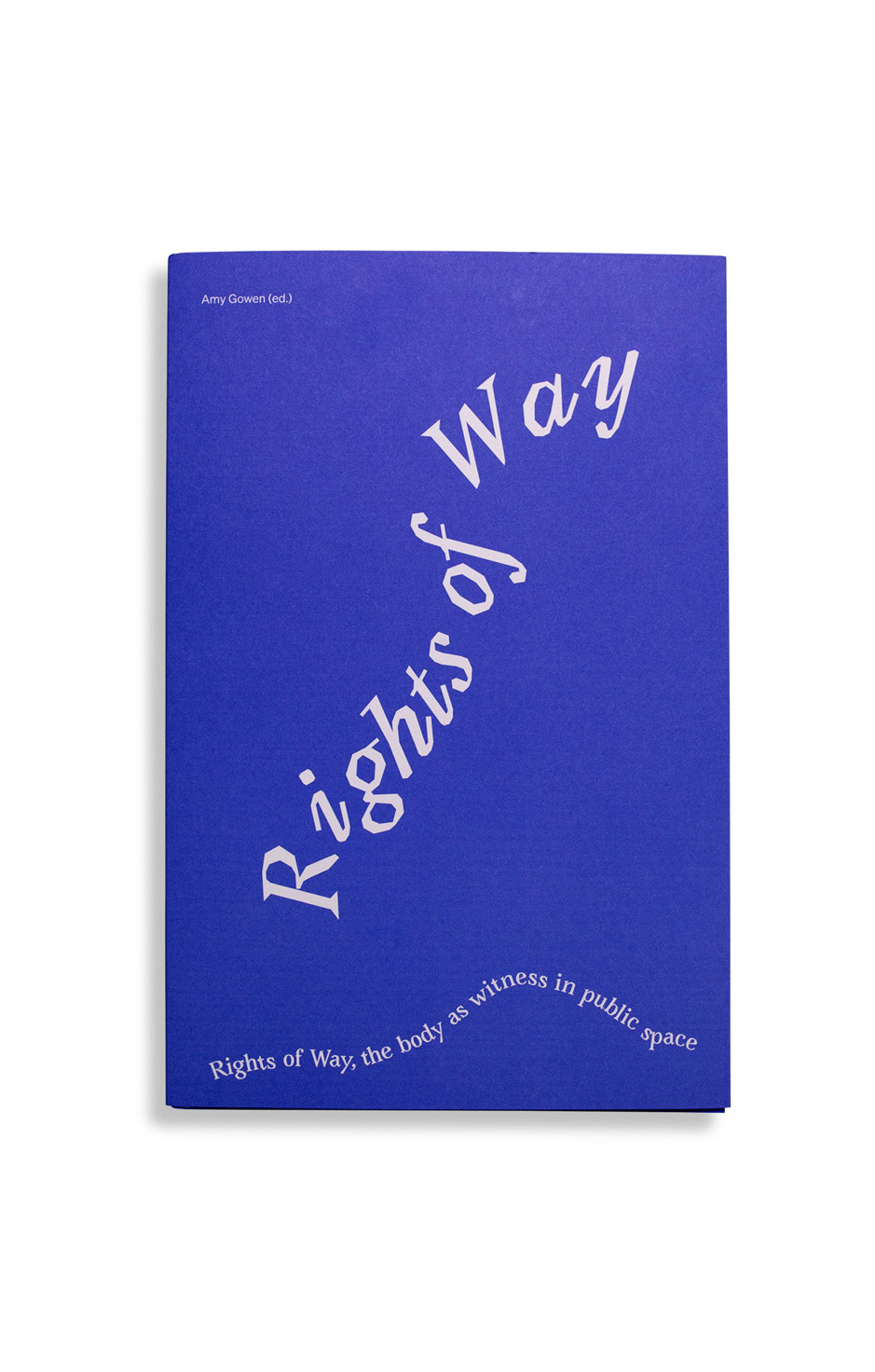
4
 5
5
notes
1 L as in Walking associative words and photographs
2 Blooming Archive exhibition banner at IHLIA LGBTI Heritage
3 Snapshots of the exhibition Rights of Way at Onomatopee
4 Rights of Way publication
5 Talking about the project on Export Radio
1 L as in Walking associative words and photographs
2 Blooming Archive exhibition banner at IHLIA LGBTI Heritage
3 Snapshots of the exhibition Rights of Way at Onomatopee
4 Rights of Way publication
5 Talking about the project on Export Radio
07. L as in Walking
L as in Walking is an experimental photography project about the relationship between queer women and public space as well as an accompanying article published in the Rights of Way publication of art publishers Onomatopee.
Lesbians walk and talk of their experiences in public space. Their steps move in rhythm with their dialogues and amplify their stories. Walking in the very public space they are talking about and actively inhabiting, the interviewer and interviewee perform an activist action. Being both visible and present with their walking bodies in the streets enhances their conversation about lesbians’ invisibility in public space as well as throughout public history.
Addressing issues of visibility, solidarity, transphobia and racism, communal living, activism and safety, they share with the audience a broad range of perceptions and analysis about the streets we walk everyday.
Analogue photographs of the places they talk about accompany their words, alongside a series of automatic associations they have made whilst walking through these spaces.
Hearing stories of queer women’s relationship with the spaces they are surrounded by is an attempt to give back a piece of the universal public space to them and to enhance the importance of actively hearing out their understanding of it. As a minority, lesbians –and women more generally– have had to fight hard for their access to public space. Their stories and deep instinctive associations with space offer a rich and subtle peek into their experience of the streets of Berlin.
2020
Exhibitions
2024 Blooming Archive, IHLIA LGBTI Heritage, Amsterdam, the Netherlands
2020 Rights of Way, Onomatopee, Eindhoven, the Netherlands
The research was supported by IHLIA LGBTI Heritage and Spinnboden Lesbenarchiv und Bibliothek Berlin